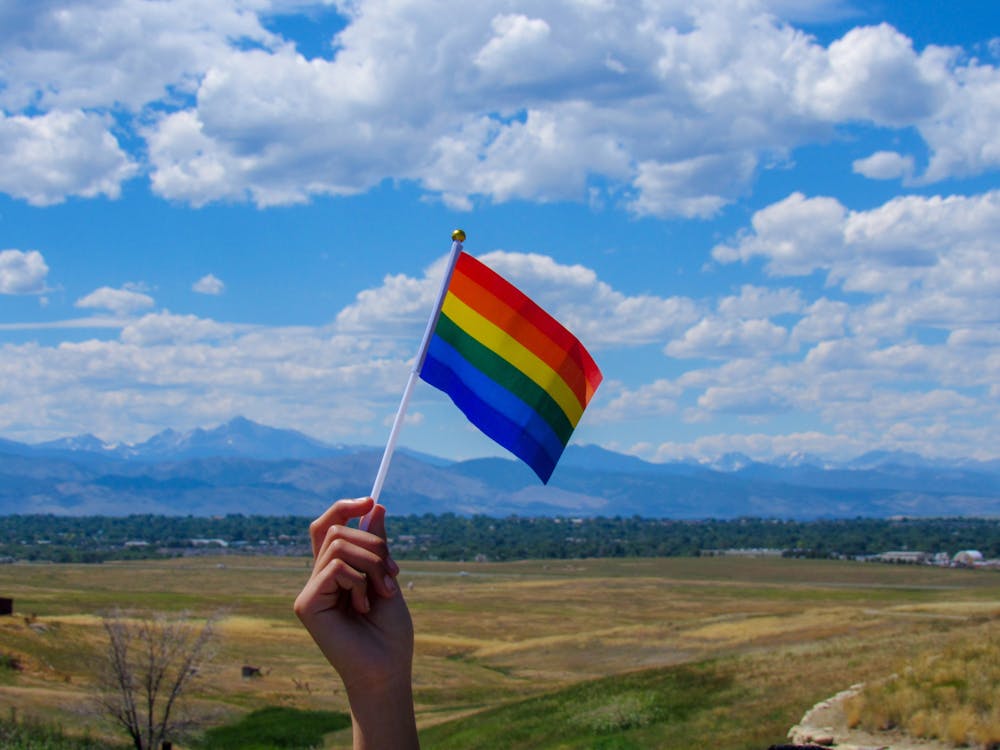Albuquerque received a score of 100 on LGBTQ+ inclusivity in laws, policies and services from the Human Rights Campaign, however the rating does not entirely reflect the experiences of Queer people in Albuquerque.
The annual HRC Municipal Equality Index (MEI) Scorecard evaluates non-discrimination laws, city employers, city services, law enforcement and leadership on LGBTQ+ equality. It equally accounts for inclusivity related to sexual orientation and gender identity.
For the second year, the HRC gave Albuquerque maximum points in each category for 2023.
Marshall Martinez – executive director of Equality New Mexico (EQNM), a statewide LGBTQ+ organization – said he agrees with the rating, but said it does not fully represent what it is like to be Queer in Albuquerque.
“Just because the city has all of the right policies in place and is doing the right things in terms of non-discrimination doesn’t mean that people who live in Albuquerque don’t still experience discrimination or oppression in some way,” Martinez said.
Madison Otero, co-chair of Juniper Reimagined, a Queer and transgender student alliance at the University of New Mexico, said she understood why Albuquerque would be given a 100 policy-wise, but brought up imperfections in the city and University’s culture.
“Last year, there were a lot of protests for Turning Point and speakers brought to campus. Prior semesters they had a really transphobic speaker, but (that’s) not law-related,” Otero said. “You can’t really expect (that) because all the laws are there that (also) means everybody’s totally cool with everything.”
The HRC sends a draft of the MEI to EQNM and the City each year, providing an opportunity for the entities to respond if they feel measurements are inaccurate, Martinez said. The EQNM does not impact the final rating, but can influence the HRC’s research.
If Martinez had input in the categories the MEI assessed, he said he would add more measurements around law enforcement – given the disproportionate policing – arresting and prosecution of LGBTQ+ people nationwide. In 2021, the Prison Policy Initiative analyzed a year of National Survey on Drug Use and Health data and found that gay, lesbian and bisexual individuals were 2.25 times more likely to be arrested than heterosexual individuals.
“When the vast majority of people who interact with law enforcement are afraid for their lives, what does that feel like for trans women of color? For Queer people who already are over-policed and harassed?” Martinez said.
The HRC’s 2023 MEI Report notes that “many states obtaining 100 scores on the MEI can’t promise 100 score experiences for its residents. The experience for Queer folks in Albuquerque, Hunter Teubner — Juniper Reimagined Communications Officer — said, can range greatly.
“(Albuquerque’s) definitely not safe for everyone, especially the unhoused members of our community,” Teubner said. “But I’d say for the most part, there is a lot here for us and the general vibe of the community – at least UNM – is very accepting.”
Get content from The Daily Lobo delivered to your inbox
The HRC rated a total of 506 cities in the United States in 2023 – 129 of which received scores of 100. This is nine more than received perfect scores in 2022. The average score in 2023 was 71; five cities received a score of zero, according to the MEI report.
“We have to remember that LGBTQ people are Black and Brown. They are women. They’re people who live in poverty. They’re people who lack health care access, and this measures one set of things, but it does not paint the entire picture of what the experience is for LGBTQ people,” Martinez said.
Lily Alexander is the news editor for the Daily Lobo. She can be reached at news@dailylobo.com or on Twitter @llilyalexander.
Lily Alexander is the 2024-2025 Editor of the Daily Lobo. She can be reached at editorinchief@dailylobo.com or on Twitter @llilyalexander






